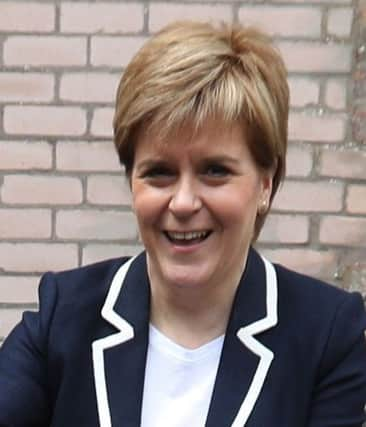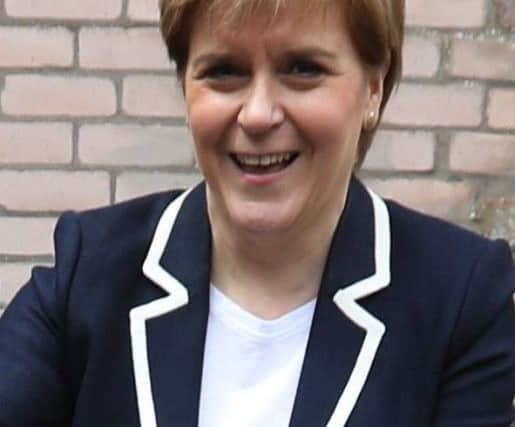GE2017 polls: Are the SNP set to lose 14 seats?


2015 was not a good year for opinion polls. Nor was 2016.
David Cameron’s party defied every prediction to win an overall majority at the general election in 2015, despite the consensus of pollsters that we were headed for another hung parliament.
The following year, all the signs pointed to a narrow but decisive win for the Remain side in the referendum on Britain’s EU membership.


Advertisement
Hide AdAdvertisement
Hide AdThat also proved wrong when it emerged the country had voted for Brexit by a margin of four per cent.
Now, the pollsters, having reassessed some of their methods which led to them overstating Labour and Remain support, are predicting a big win for Theresa May.
In Scotland, the indications are that the Tories are set for a good night, with a number of SNP seats under threat.


Indeed, one online poll from The Sun yesterday had the party on 39 per cent, set to lose 16 seats to their main three rivals.
We look at whether that poll could come to fruition and the wider polling picture.
“Bombshell” poll
The Sun poll that was described as a ‘bombshell’ survey was undertaken by Survey Monkey, who specialise in online polls created by users.
That would mean the SNP going from 56 MPs to 42, still by far the largest party.
The Tories would gain 11 seats to sit on an even dozen, with Ruth Davidson’s party claiming a number of seats from SNP big-hitters such as Angus Robertson and Pete Wishart.
Advertisement
Hide AdAdvertisement
Hide AdThe Lib Dems would go from one to three MPs, presumably taking seats where they are favourites to win in East Dunbartonshire, Edinburgh West, and Orkney and Shetland.
Even Labour would have success at the expense of the SNP according to the poll, doubling their representation at Westminster by going to two MPs. The SNP used the poll to issue a rallying cry to supporters to work harder than ever convincing voters that they alone can prevent a Tory surge.
Case for the defence
Some pro-independence voices online dismissed the poll out of hand as not reflective the reality they see on the doorsteps.
Seasoned commentators looked suspiciously at the poll, mainly considering the company, who are often used for student surveys and questionnaires.
The company doesn’t have much experience in Scottish politics, and unlike more established names like Yougov and Survation, their modelling and ways of weighting aren’t as well known.
Established pollsters are often sceptical of polls that are carried out exclusively online, as this one was.
That said, there are a number of factors that should give SNP strategists pause for thought, and show that Survey Monkey aren’t wide of the mark. Firstly, there was a sample size of around 2,000 – that’s far more than the standard 1,000 required for a poll to be considered representative.
It’s also far higher than a Yougov sub-sample in Scotland, although the two showed very similar percentage polling results.
Advertisement
Hide AdAdvertisement
Hide AdFinally, and perhaps most tellingly, Survey Monkey were lauded by polling guru Nate Silver of the data blog 538.com as one of the main ‘winners’ of the 2015 election.
Survey Monkey’s final poll was far closer to the eventual result than many of their competitors, although they still understated the eventual Tory vote share.
They established the picture of a trend that showed the Lib Dem vote collapsing, allowing the Tories to pick up a number of seats in the South of England.
The wider picture
Yesterday’s poll, of course, didn’t take place in a vacuum. Election is boom time for the pollsters, and there tends to be a general election surveyed released on average once every two days, even more as we enter the final stretch of campaigning before June 8.
A Yougov poll for the Times earlier this month showed the SNP enjoying a far healthier lead, with their 1,000 sample size poll showing the SNP on 42 per cent, ahead of the Tories on 29.
That 13 per cent lead is the same as it was in the company’s earlier poll in late April, which showed the SNP on 41 ahead of Ruth Davidson’s party on 28.
One of the better indicators can be local results held before the election, although they are often hard to extrapolate considering the differing voting systems.
In the council elections on May 4, the SNP won 32 per cent of first preference votes, ahead of the Tories on 25.
Advertisement
Hide AdAdvertisement
Hide AdThe biggest change however will be in support for independent candidates, who took 10 per cent of the available first preference votes but will receive barely any votes at the upcoming elections.
Whether you believe polls as gospel, or take them with a large pinch of salt, there’s no denying that the most recent figures are making for a very interesting race with just ten days to polling day.
